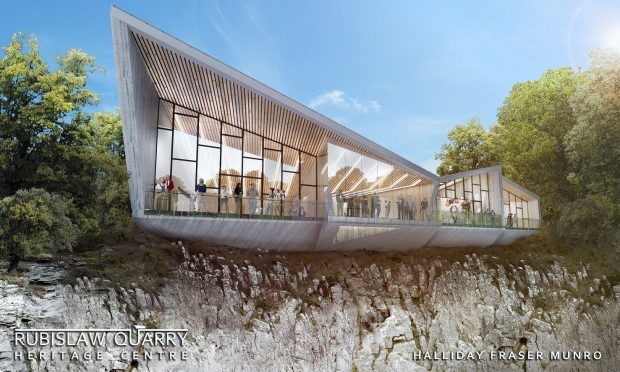Plans to transform a quarry into a visitor centre celebrating Aberdeen’s granite history have hit the rocks.
Businessman Hugh Black wants to transform the southern and western parts of the flooded Rubislaw Quarry into a £6million heritage centre and tourist attraction.
In recent months he has organised a series of high-profile stunts at the historic site – once Europe’s biggest man-made hole – to publicise the scheme, which is backed by a national tourism chief.
Over the course of five days in November Mr Black’s Rubislaw Quarry Aberdeen Ltd put forward a case to the Lands Tribunal for Scotland to vary the conditions.
However in a report which it is understood will be published today, the application has been denied, casting doubt on the future of the project.
Last night Mr Black said he was “shocked” and would be seeking further legal advice.
Rival developers Carttera, who hope to build a £68million, up to 10-storey high development on the northern edge of the quarry including 300 flats, a gym and more, welcomed the decision.
The Toronto-based company’s founder Jim Tadeson said he felt “gratified” by the news.
Carttera’s proposals for the quarry also feature a “heritage bistro” which is planned to host a permanent exhibition detailing the history of Rubislaw Quarry, which gave Aberdeen its Granite City nickname.
Mr Tadeson previously said: “We have another heritage centre proposed next to us, which we have been opposed to all along.
“We have always believed that the area where that centre is proposed should be preserved in its natural state.”
A spokesman for the Lands Tribunal for Scotland said: “It was a big decision, in that it was a five day hearing, to do with an application to vary a title condition that affected the quarry and on the face of it prohibited a granite heritage centre that the applicants wanted to build.
“Mr Black was applying for the decision, and that outcome has not gone in his favour.”
Mr Black’s vision for the site was backed by the chief executive of Visit Scotland Malcolm Roughead when he visited in September.
At the time, Mr Roughead said he hoped it would “eventually be a great asset to the city”.
